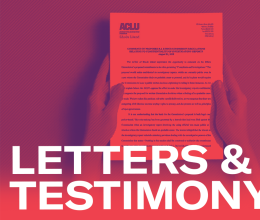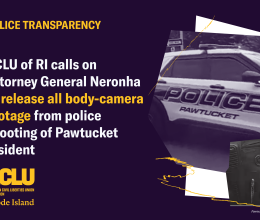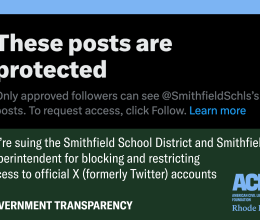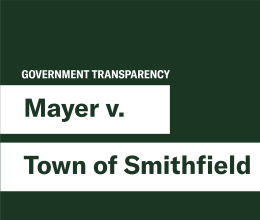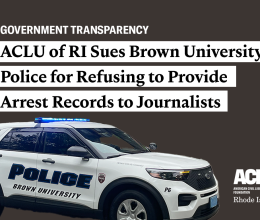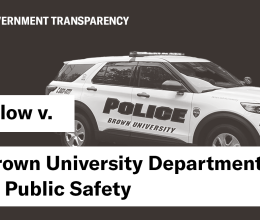
The Access to Public Records Act, or APRA, is a state law that gives individuals the right to see and obtain public records. The law provides guidelines for obtaining access to these records, and also defines which records are subject to public inspection and which are exempt.
We provide a sample APRA request letter in the last FAQ below.
Last updated: March 2018
The information below should not be taken as legal advice. If you have additional questions, or if you feel your rights have been violated, please contact the ACLU of RI.

